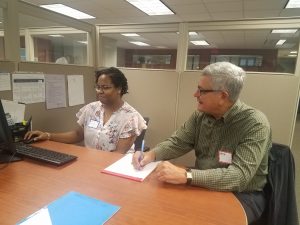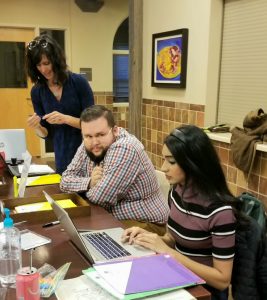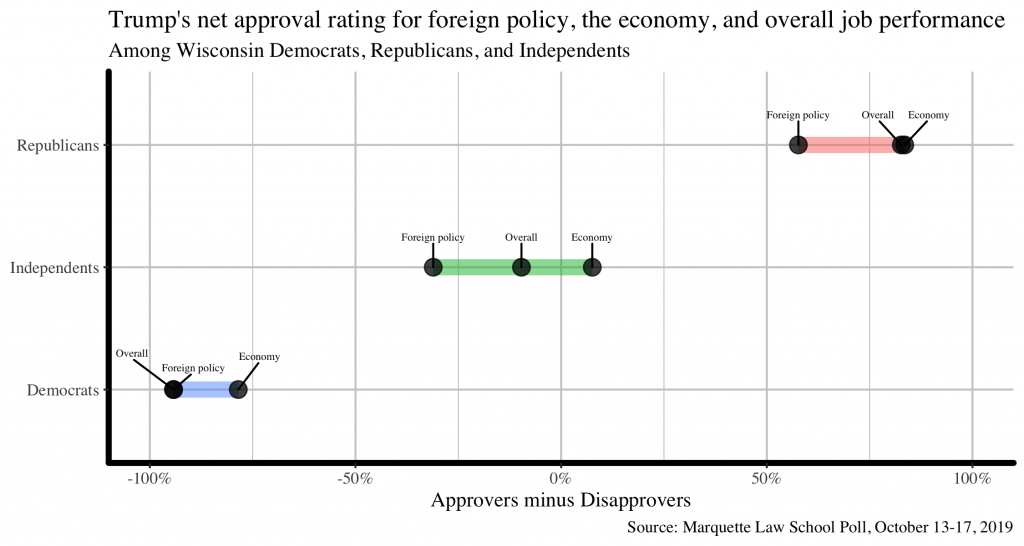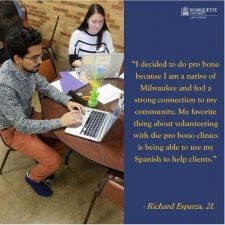Pro Bono Week: Student and Alumni Features, Part II
For the remaining Pro Bono Week features, not only do we have some individual students and alumni, but we also feature a student organization as well. Please follow us on Twitter and Instagram to see more photos throughout the week.
Our next student to be featured is Kelsey Brown. Kelsey is a 3L and will be graduating this December.  She has been involved since October of her first year of law school and has participated with the House of Peace, UCC, Milwaukee Justice Center, and the Veteran’s Service Office throughout her law school tenure.
She has been involved since October of her first year of law school and has participated with the House of Peace, UCC, Milwaukee Justice Center, and the Veteran’s Service Office throughout her law school tenure.
Her reasons for participating in pro bono opportunities: “I decided to do pro bono because I wanted to better educate people on the law. I felt that if people were better educated on the law, then they are in a better position to recognize and fight against unfair and unnecessary treatment against them. I also wanted to be a role model for individuals who come to the clinics. I wanted to show them that lawyers come in all shapes, sizes, and shades—just like them. And hopefully by seeing an African American female such as myself working at the clinic, they will see the legitimacy of the Wisconsin court system. My favorite thing about volunteering at is that everyone feels good—the client feels good because he or she received legal advice; and the volunteer law student/volunteer lawyer feel good because they helped a client understand the Wisconsin legal system.”
Salonee Patel is a 3L who has been working with the pro bono programs for about two and half years. She’s volunteered with the Milwaukee Justice Center in the past but you can primarily find her at the United Community Center this year.  She is one of our Student Advisory Board members and says her favorite part is “working alongside attorneys and students to help our clients out with their legal issues.”
She is one of our Student Advisory Board members and says her favorite part is “working alongside attorneys and students to help our clients out with their legal issues.”
Salonee has many reasons for doing pro bono work. “It is important to volunteer and help out especially when you have the time and resources to do so,” she says, and “as a law student, not only do you start learning certain legal skills, but you also get to know your community better.”
Not only do individual students, participate in pro bono work, our student organizations do too.


